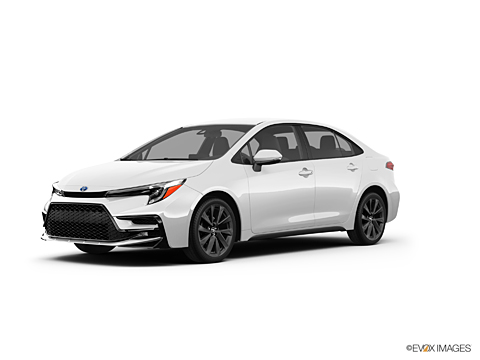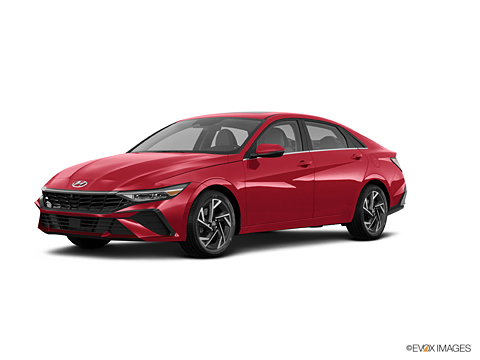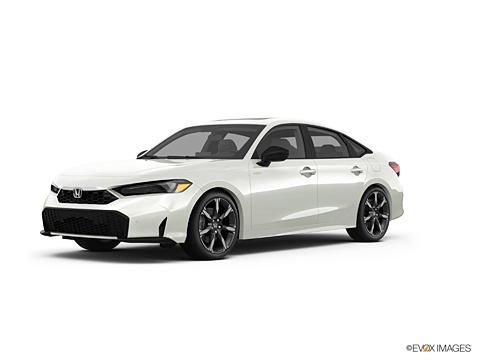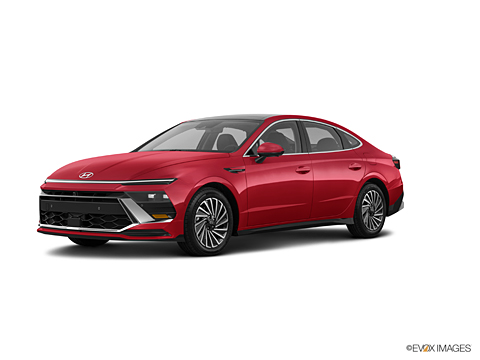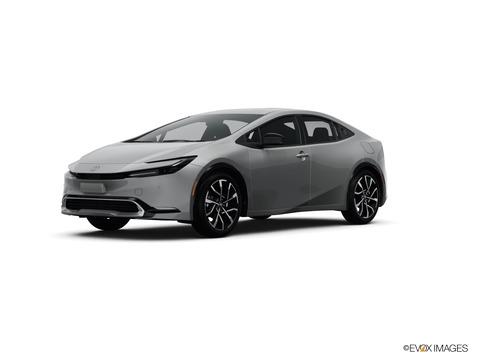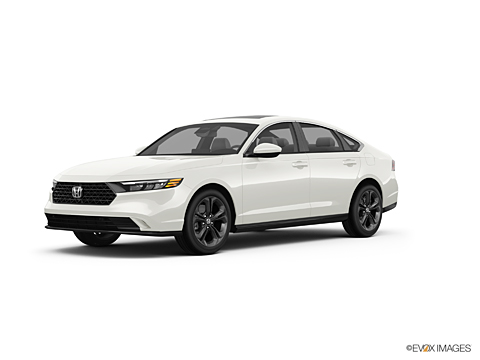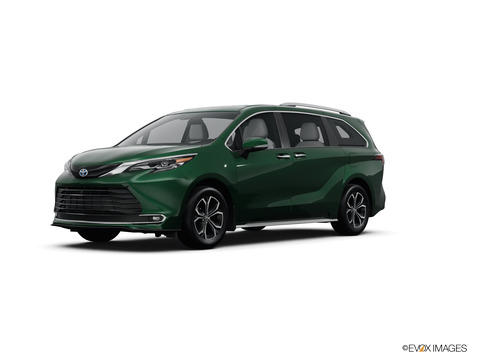
Most Affordable Hybrid Cars for 2025
The most affordable new hybrid cars are ranked based on our analysis of their lowest base prices, though local market conditions might push a specific model’s price above the starting MSRP for vehicles in short supply or with high demand.
The most affordable hybrid car is the Toyota Corolla Hybrid sedan hybrid, with a starting price of $23,825 based on iSeecars.com’s affordability ranking of 15 hybrid cars. The most affordable hybrid cars offer the lowest starting price for their base trim level. The average starting price for a hybrid car is $33,255, and there are 9 hybrid cars that are cheaper.
The hybrid car affordability ranking is calculated based on the starting price for the lowest-priced trim level of a given model. The overall iSeeCars Score also factors into the ranking of each vehicle. Shoppers seeking the most affordable hybrid car should consider costs beyond the purchase price, including residual value, insurance, fuel efficiency, and maintenance, to fully understand how much a specific hybrid car will cost to own and operate.
Hybrid powertrains have been available for more than 20 years, but in recent years hybrid models have appealed to a larger percentage of automotive shoppers as they realize the benefits of combining an electric motor with a gasoline engine for improved fuel economy. Hybrid vehicles also benefit from the same mandated warranty protection as electric vehicles, which covers the battery pack for 8 years or 100,000 miles. This has reduced consumer concerns over battery pack replacement costs, further expanding the appeal of hybrids.
Reduced price premiums for the hybrid version of a traditional model have also made them more affordable for mainstream buyers. It’s not uncommon for the cheapest hybrid cars to cost less than 10 percent more than a base model with a gasoline engine. And hybrid cars like the Toyota Prius usually include more standard features, like Apple CarPlay, a larger infotainment screen, and radar cruise control, compared to an equivalent gas model, further justifying the price increase.
Finally, the driving experience with modern hybrids has improved, with quicker acceleration and more consistent brake feel versus earlier models, all while offering substantially better gas mileage. And with both front-wheel drive or all-wheel drive available on many hybrids, shoppers in cold-weather climates can save fuel and have increased confidence on slippery roads.
Buyers needing more rear seat or cargo space might consider an SUV like the Kia Sportage hybrid, Toyota Corolla Cross hybrid, or Toyota RAV4 hybrid. The Kia Niro plug-in hybrid provides both increased interior space and an all-electric driving range, while truck shoppers seeking maximum fuel efficiency should look into the Ford Maverick hybrid compact pickup.
And if the reduced emissions from a hybrid or plug-in hybrid vehicle still aren’t satisfying your CO2 standards, an electric car like the Chevrolet Bolt or Nissan Leaf offers zero emissions. But unlike a hybrid, you’ll have to plan your trips in an EV to ensure you don’t run out of battery power before you can recharge the vehicle.

Hybrid powertrains have been available for more than 20 years, but in recent years hybrid models have appealed to a larger percentage of automotive shoppers as they realize the benefits of combining an electric motor with a gasoline engine for improved fuel economy. Hybrid vehicles also benefit from the same mandated warranty protection as electric vehicles, which covers the battery pack for 8 years or 100,000 miles. This has reduced consumer concerns over battery pack replacement costs, further expanding the appeal of hybrids.
Reduced price premiums for the hybrid version of a traditional model have also made them more affordable for mainstream buyers. It’s not uncommon for the cheapest hybrid cars to cost less than 10 percent more than a base model with a gasoline engine. And hybrid cars like the Toyota Prius usually include more standard features, like Apple CarPlay, a larger infotainment screen, and radar cruise control, compared to an equivalent gas model, further justifying the price increase.
Finally, the driving experience with modern hybrids has improved, with quicker acceleration and more consistent brake feel versus earlier models, all while offering substantially better gas mileage. And with both front-wheel drive or all-wheel drive available on many hybrids, shoppers in cold-weather climates can save fuel and have increased confidence on slippery roads.
Buyers needing more rear seat or cargo space might consider an SUV like the Kia Sportage hybrid, Toyota Corolla Cross hybrid, or Toyota RAV4 hybrid. The Kia Niro plug-in hybrid provides both increased interior space and an all-electric driving range, while truck shoppers seeking maximum fuel efficiency should look into the Ford Maverick hybrid compact pickup.
And if the reduced emissions from a hybrid or plug-in hybrid vehicle still aren’t satisfying your CO2 standards, an electric car like the Chevrolet Bolt or Nissan Leaf offers zero emissions. But unlike a hybrid, you’ll have to plan your trips in an EV to ensure you don’t run out of battery power before you can recharge the vehicle.

-
Starting MSRP 23825
 iSEECARS SCORE
iSEECARS SCORE

iSeeCars Best Car Rankings are calculated based on an analysis of data from over 12 million cars that assesses how long each vehicle lasts and how well it retains its value over time, along with safety data from the National Highway Traffic Safety Association
See how we rank these cars
-
Reliability Coming soon
-
Value Retention 8.9 / 10
-
Safety 8.0 / 10
-
Starting MSRP 25530
 iSEECARS SCORE
iSEECARS SCORE

iSeeCars Best Car Rankings are calculated based on an analysis of data from over 12 million cars that assesses how long each vehicle lasts and how well it retains its value over time, along with safety data from the National Highway Traffic Safety Association
See how we rank these cars
-
Reliability Coming soon
-
Value Retention 8.3 / 10
-
Safety 8.0 / 10
-
Starting MSRP 28550
 iSEECARS SCORE
iSEECARS SCORE

iSeeCars Best Car Rankings are calculated based on an analysis of data from over 12 million cars that assesses how long each vehicle lasts and how well it retains its value over time, along with safety data from the National Highway Traffic Safety Association
See how we rank these cars
-
Reliability 8.1 / 10
-
Value Retention 8.8 / 10
-
Safety 10 / 10
-
Starting MSRP 28700
 iSEECARS SCORE
iSEECARS SCORE

iSeeCars Best Car Rankings are calculated based on an analysis of data from over 12 million cars that assesses how long each vehicle lasts and how well it retains its value over time, along with safety data from the National Highway Traffic Safety Association
See how we rank these cars
-
Reliability 8.1 / 10
-
Value Retention 8.6 / 10
-
Safety 8.0 / 10
-
Starting MSRP 28855
 iSEECARS SCORE
iSEECARS SCORE

iSeeCars Best Car Rankings are calculated based on an analysis of data from over 12 million cars that assesses how long each vehicle lasts and how well it retains its value over time, along with safety data from the National Highway Traffic Safety Association
See how we rank these cars
-
Reliability 8.1 / 10
-
Value Retention 8.5 / 10
-
Safety 8.0 / 10
-
Starting MSRP 29295
 iSEECARS SCORE
iSEECARS SCORE

iSeeCars Best Car Rankings are calculated based on an analysis of data from over 12 million cars that assesses how long each vehicle lasts and how well it retains its value over time, along with safety data from the National Highway Traffic Safety Association
See how we rank these cars
-
Reliability 8.251372014919559 / 10
-
Value Retention 8.8 / 10
-
Safety 8.0 / 10
-
Starting MSRP 30150
 iSEECARS SCORE
iSEECARS SCORE

iSeeCars Best Car Rankings are calculated based on an analysis of data from over 12 million cars that assesses how long each vehicle lasts and how well it retains its value over time, along with safety data from the National Highway Traffic Safety Association
See how we rank these cars
-
Reliability Coming soon
-
Value Retention 8.9 / 10
-
Safety 8.0 / 10
-
Starting MSRP 31250
 iSEECARS SCORE
iSEECARS SCORE

iSeeCars Best Car Rankings are calculated based on an analysis of data from over 12 million cars that assesses how long each vehicle lasts and how well it retains its value over time, along with safety data from the National Highway Traffic Safety Association
See how we rank these cars
-
Reliability 7.2 / 10
-
Value Retention 7.9 / 10
-
Safety 8.0 / 10
-
Starting MSRP 32975
 iSEECARS SCORE
iSEECARS SCORE

iSeeCars Best Car Rankings are calculated based on an analysis of data from over 12 million cars that assesses how long each vehicle lasts and how well it retains its value over time, along with safety data from the National Highway Traffic Safety Association
See how we rank these cars
-
Reliability Coming soon
-
Value Retention 8.7 / 10
-
Safety 9.0 / 10
-
Starting MSRP 33375
 iSEECARS SCORE
iSEECARS SCORE

iSeeCars Best Car Rankings are calculated based on an analysis of data from over 12 million cars that assesses how long each vehicle lasts and how well it retains its value over time, along with safety data from the National Highway Traffic Safety Association
See how we rank these cars
-
Reliability 7.5 / 10
-
Value Retention 8.8 / 10
-
Safety 8.0 / 10
-
Starting MSRP 33655
 iSEECARS SCORE
iSEECARS SCORE

iSeeCars Best Car Rankings are calculated based on an analysis of data from over 12 million cars that assesses how long each vehicle lasts and how well it retains its value over time, along with safety data from the National Highway Traffic Safety Association
See how we rank these cars
-
Reliability 8.0 / 10
-
Value Retention 8.4 / 10
-
Safety 8.0 / 10
-
Starting MSRP 39185
 iSEECARS SCORE
iSEECARS SCORE

iSeeCars Best Car Rankings are calculated based on an analysis of data from over 12 million cars that assesses how long each vehicle lasts and how well it retains its value over time, along with safety data from the National Highway Traffic Safety Association
See how we rank these cars
-
Reliability 8.1 / 10
-
Value Retention 8.6 / 10
-
Safety 9.0 / 10
-
Starting MSRP 40990
 iSEECARS SCORE
iSEECARS SCORE

iSeeCars Best Car Rankings are calculated based on an analysis of data from over 12 million cars that assesses how long each vehicle lasts and how well it retains its value over time, along with safety data from the National Highway Traffic Safety Association
See how we rank these cars
-
Reliability Coming soon
-
Value Retention 7.6 / 10
-
Safety Not Available
-
Starting MSRP 41440
 iSEECARS SCORE
iSEECARS SCORE

iSeeCars Best Car Rankings are calculated based on an analysis of data from over 12 million cars that assesses how long each vehicle lasts and how well it retains its value over time, along with safety data from the National Highway Traffic Safety Association
See how we rank these cars
-
Reliability Coming soon
-
Value Retention 8.2 / 10
-
Safety 9.0 / 10
-
Starting MSRP 51055
 iSEECARS SCORE
iSEECARS SCORE

iSeeCars Best Car Rankings are calculated based on an analysis of data from over 12 million cars that assesses how long each vehicle lasts and how well it retains its value over time, along with safety data from the National Highway Traffic Safety Association
See how we rank these cars
-
Reliability Coming soon
-
Value Retention 7.5 / 10
-
Safety 8.0 / 10
Related Rankings
How We Rank These Cars
The Most Affordable Car lists rank vehicles by their starting MSRP.
Starting MSRP is the lowest MSRP across all trims for a given new car model. In the event there is a tie, we use iSeeCars proprietary rating of the overall quality of the car (iSeeCars Score) to break the tie.
The overall iSeeCars Score is an analysis of three factors: reliability, resale value and safety. It is calculated based on the latest research and analysis by our data science team. The data analysis comes from over 12 million new and used vehicles in our Longest-Lasting Cars and 5-Year Depreciation Studies, combined with NHTSA and IIHS Safety Ratings.
Vehicles are scored in three categories:

Reliability
The reliability score represents an analysis of iSeeCars' proprietary research on the longest-lasting vehicles.

Value Retention
The value retention score is based on our data science team's statistical analysis and prediction of 5-year depreciation from MSRP to determine which cars hold their value best, using US Bureau of Labor Statistics data to adjust for inflation.

Safety
The safety score is calculated based on the last five years of crash test ratings from the National Highway Traffic Safety Administration (NHTSA) and incorporates the latest Top Safety Pick information from the Insurance Institute for Highway Safety (IIHS).

